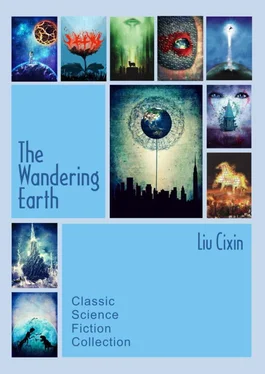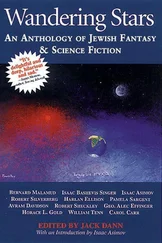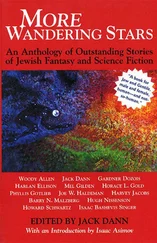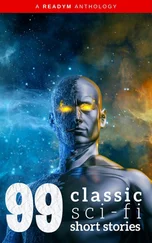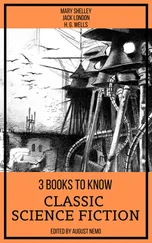Лю Цысинь - The Wandering Earth - Classic Science Fiction Collection
Здесь есть возможность читать онлайн «Лю Цысинь - The Wandering Earth - Classic Science Fiction Collection» весь текст электронной книги совершенно бесплатно (целиком полную версию без сокращений). В некоторых случаях можно слушать аудио, скачать через торрент в формате fb2 и присутствует краткое содержание. Город: Beijing, Год выпуска: 2013, ISBN: 2013, Издательство: Beijing Guomi Digital Technology Co., Ltd., Жанр: Фантастика и фэнтези, на английском языке. Описание произведения, (предисловие) а так же отзывы посетителей доступны на портале библиотеки ЛибКат.
- Название:The Wandering Earth: Classic Science Fiction Collection
- Автор:
- Издательство:Beijing Guomi Digital Technology Co., Ltd.
- Жанр:
- Год:2013
- Город:Beijing
- ISBN:978-1-4895-0285-8
- Рейтинг книги:4 / 5. Голосов: 1
-
Избранное:Добавить в избранное
- Отзывы:
-
Ваша оценка:
- 80
- 1
- 2
- 3
- 4
- 5
The Wandering Earth: Classic Science Fiction Collection: краткое содержание, описание и аннотация
Предлагаем к чтению аннотацию, описание, краткое содержание или предисловие (зависит от того, что написал сам автор книги «The Wandering Earth: Classic Science Fiction Collection»). Если вы не нашли необходимую информацию о книге — напишите в комментариях, мы постараемся отыскать её.
The Wandering Earth: Classic Science Fiction Collection — читать онлайн бесплатно полную книгу (весь текст) целиком
Ниже представлен текст книги, разбитый по страницам. Система сохранения места последней прочитанной страницы, позволяет с удобством читать онлайн бесплатно книгу «The Wandering Earth: Classic Science Fiction Collection», без необходимости каждый раз заново искать на чём Вы остановились. Поставьте закладку, и сможете в любой момент перейти на страницу, на которой закончили чтение.
Интервал:
Закладка:
Ms. Xing and some of the burly sailors had managed to separate the fighting children, but it was no easy feat.
Even as he was being dragged away with a bloodied nose, Tung shouted, “Throw the Earth Faction overboard!” He pumped his fist in to emphasize his point.
“I am Earth Faction, too,” Ms. Xing said with exasperation. “Do you want to throw me overboard, too?”
“We’ll throw every last one of the Earth Faction overboard!” Tung shouted, utterly unwilling to back down.
In those days, the Spaceship Faction was losing in public popularity and they had grown even more unruly as a result.
“Why do you hate us so much?” Ms. Xing asked.
“We don’t want to wait for death together with you Earth Faction fool!” a couple of the Spaceship Faction kids immediately shouted in response.
“We will build the spaceships! All hail the spaceships!” they chanted.
Ms. Xing pressed the holographic emitter on her wrist. Immediately, a holographic image appeared in the air in front of us. We children stared at it in rapt attention and, at least for a moment, peace returned. Floating in front us was the image of a glittering and translucent glass sphere. The hermetically sealed sphere was about four inches in diameter. Two-thirds of it was filled with water. A small shrimp, a small sprig of coral and a bit of green algae swam in the water. The shrimp languidly moved about inside the sphere.
Ms. Xing said, “This is something Tung came up with for natural science class. There is more inside this small ball than meets the eye; it is also full of microscopic bacteria. All things inside it interact with and support one another. The shrimp eats the algae and draws oxygen from the water. It then discharges organic matter in its feces and it breathes out gaseous carbon dioxide. The bacteria further breakdown the discharge into inorganic matter and carbon dioxide. With the inorganic matter, the algae then use artificial sunlight to perform photosynthesis.”
We all gazed in awe as she explained to us the process.
“They thereby can manufacture nutrients, grow and reproduce, all while exuding oxygen for the shrimp to breathe,” she told us. “With nothing but sunlight, this ecological cycle should be infinitely self-perpetuating. It was the best class work I had ever seen and I was well aware that it encapsulated Tung’s dreams, as well as the dreams of every other child of the Spaceship Faction,” she said fairly. “In essence, it is a miniature of the spaceship they so desire! Tung told me that he had designed it according to computations based on rigorous mathematical models and that he modified the genes of every life form in the sphere, ensuring that their metabolisms would achieve a perfect balance. He firmly believed that life within the sphere would endure, right down to the natural end of the shrimp’s life. All of us teachers loved the project and we provided it with artificial sunlight at the required intensity. Convinced by Tung’s calculations, we quietly wished that his little world would succeed. But today, just about a dozen days later…”
With great care, Ms Xing produced the real glass sphere from a small box. The shrimp floated on the water’s surface, dead. The water itself had gone a dismal shade of cloudy and the rotting algae inside had lost their green, and had now turned into a dead, woolly substance covering the coral.
“This small world is dead. Children, who can tell me why?” Ms. Xing asked, showing us the lifeless sphere.
Someone quickly called out an answer. “It is too small!”
Ms. Xing smiled and nodded. “You are right; it is too small. A small biosphere, no matter how precisely designed, can never withstand the test of time. It is no different with the vessel that the Spaceship Faction imagines.”
“We could build a spaceship the size of Shanghai or New York,” Tung retorted, his voice subdued, his eyes on the sphere.
“That is true, but that would be the limit of our current technology and compared to the Earth, such a biosphere would still be very small,” Ms. Xing replied gently. “Too small, in fact.”
“We can find a new planet,” Tung countered.
“Even your faction does not really believe that,” Ms. Xing said. “There are no available planets in Centaurus. The nearest fixed star with an available planet is eight-hundred-fifty light-years away. Even the fastest ship we can build can travel no more than zero-point-five percent of the speed of light. At that speed it would take us one-hundred seventy-thousand years just to get there. The spaceship’s biosphere would not even be able to last a tenth of that. Children, only an ecological system the size of Earth, with its vigorous and all-encompassing biosphere, can exist in perpetuity. Should humanity leave Earth to travel across the universe,” she said, concluding her impassioned explanation, “it would be no different from an infant leaving its mother in the middle of a desert!”
“But,” Tung said, pausing before he continued in an almost pleading tone, “teacher, it’s too late for us and too late for Earth. It is too late for it to reach sufficient speed and to make it far enough away. The Sun is about to explode!”
Ms. Xing would have none of that sort of talk. “It is not too late,” she told him, and us as we all listened in. “We must trust the Unity Government! How many times have I told you? Even if you don’t believe, even if worst comes to worst, ‘At least humanity died with pride, fighting to the end!’”
Humanity’s exodus would proceed in five steps: First, the Earth Engines’ jets would be used to counteract the Earth’s movement, stopping its rotation. Second, the engines’ entire power would be used to set the Earth on a new path, accelerating the Earth into escape velocity, taking it away from the Sun. Third, in outer space, the Earth would continue to accelerate as it traveled to Proxima Centauri. Fourth, in transit, the Earth Engines would be re-aligned, the Earth’s rotation would be restarted and the deceleration process initiated. And then fifth, the Earth would be moored in an orbit around Proxima Centauri, becoming its planet. People also called these five steps the “Reining Age”, the “Exodial Age”, the “First Wandering Age” (during acceleration), the “Second Wandering Age” (during deceleration), and the “New Sun Age”.
The entire exodus would last 2,500 years, about 100 generations.
Our ship continued its voyage, making its way into the Earth’s night. Neither the light of the Sun nor the glow of the Earth Engines could be seen here. As we stood in the cool Atlantic breeze, we children saw our first starry sky.
God, the beauty of it was heartbreaking!
Ms. Xing arched her arm around the nearest few of us, as if to embrace us all with one hand. “Look, children,” she said as she pointed to the heavens with her other hand. “There is Centaurus and that is Proxima Centauri, our new home!” Tears began trickling down her face as she spoke those words, leading her to weep.
It was an emotionally infectious moment, seeing her tears. By the time she finished, we were all sobbing. All around us◦— even the sailors and the captain, hardened seafarers one and all◦— no one could stop the tears from welling up in their eyes. Through our tears we all looked in the direction that Ms. Xing was pointing, the stars in the sky twinkling as we cried. Only one point of light did not waver; a heavenly lighthouse on the distant shores of the wild sea of the night, a faint beacon for lonely travelers freezing in the cold desolation: The star of our hearts, Proxima Centauri. It was the only hope and support for a hundred future generations, set on a course through a sea of woes.
On our return voyage, we saw the first sign that Earth had begun its journey. A gigantic comet had appeared in the night sky. It was the Moon, abandoned by humanity. The comet’s tail was, in fact, the jet of Lunar Engines, pushing the Moon out of its orbit to ensure that there would be no catastrophic collision as the Earth began its acceleration. The Lunar Engines’ trail covered the ocean in a blue glow and drowned out the stars. As it moved, the gravitational tide of the Moon riled up the ocean, raising towering waves. We quickly transferred to a plane to continue our journey to our destination in the Southern Hemisphere.
Читать дальшеИнтервал:
Закладка:
Похожие книги на «The Wandering Earth: Classic Science Fiction Collection»
Представляем Вашему вниманию похожие книги на «The Wandering Earth: Classic Science Fiction Collection» списком для выбора. Мы отобрали схожую по названию и смыслу литературу в надежде предоставить читателям больше вариантов отыскать новые, интересные, ещё непрочитанные произведения.
Обсуждение, отзывы о книге «The Wandering Earth: Classic Science Fiction Collection» и просто собственные мнения читателей. Оставьте ваши комментарии, напишите, что Вы думаете о произведении, его смысле или главных героях. Укажите что конкретно понравилось, а что нет, и почему Вы так считаете.
